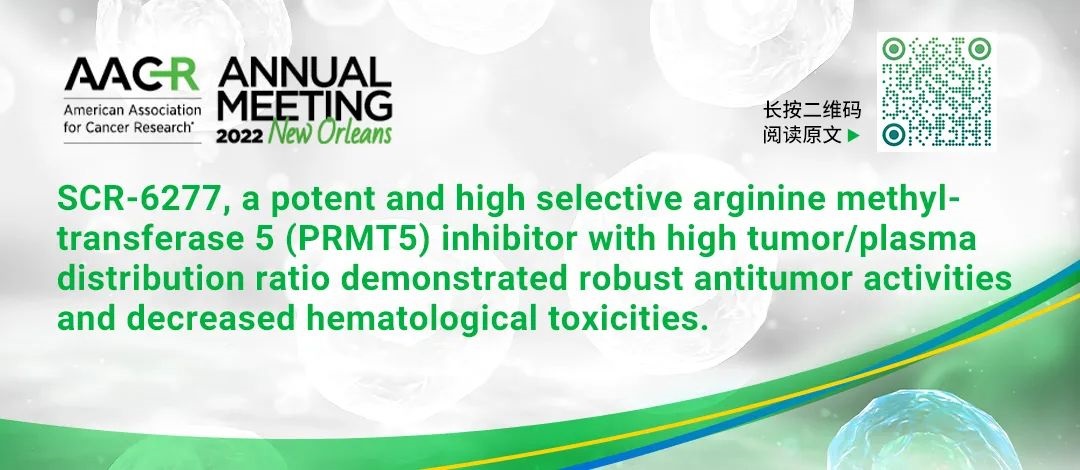In March 23, 2022, Simcere announces that SIM0272(product code:SCR-6920,molecular code:SCR-6277), Simcere’s oral protein arginine methyltransferase 5 (PRMT5) inhibitor has recently obtained the Clinical Trial (IND)Approval issued by the National Medical Products Administration(NMPA), which is intended to be used in the clinical trial for the treatment of advanced malignant tumors.
PRMT5 is a promising antitumor target for MTAP deleted cancers, with potential "synthetic lethality" mechanism where the combination of two genetic events results in cell death. Besides, PRMT5 is over expressed in various cancers such as lung cancer, breast cancer, gastric cancer, colorectal cancer, ovarian cancer, leukemia and lymphoma, and is associated with cancer progression and poor prognosis, indicating that it plays an important role in the formation and development of tumors.
Despite various efforts being made by pharmaceutical companies around the world to develop new drugs for this target, there are currently no PRMT5 inhibitors approved to market. Published data of the PRMT5 candidates in clinical study suggests that target-related hematological toxicity (such as anemia) is the main dose-limiting toxicity of PRMT5 inhibitors.

SIM0272 is a novel molecule independently developed by Simcere with high inhibitory activity and high selectivity for PRMT5 in tumor tissues. Pharmacokinetic studies have revealed that SIM0272 has higher tissue accumulation coefficient and lower plasma exposure, with the potential to minimize target-related blood toxicity. A research article of this molecule(SIM0272/SCR-6277) by Simcere scientists is selected for oral presentation at the 2022 American Association for Cancer Research (AACR) annual meeting.
Guided by the huge unmet clinical needs of cancer patients, Simcere is dedicated to rapid development of this product, so as to provide patients with new options for tumor treatment with high efficiency and low toxicity.